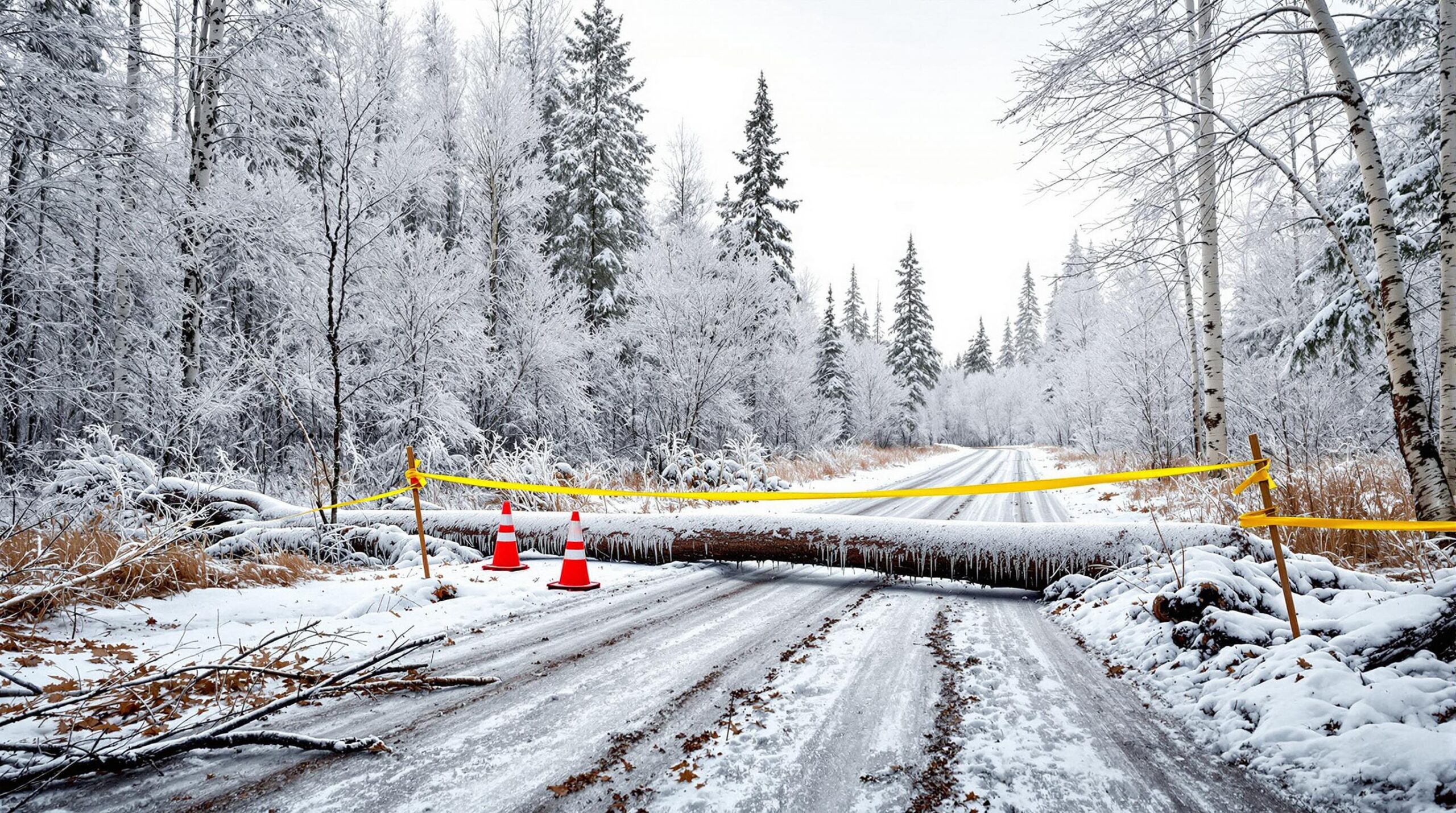A late-March ice storm glazed northern Michigan with inches of ice, toppling trees and power lines and prompting Gov. Gretchen Whitmer to declare an emergency covering 10 counties, with Alcona and Antrim added later to bring the total to 12, forcing the Michigan Department of Natural Resources to shut dozens of state parks and trails a DNR release said.
For park, campground and glamping operators, the disaster hits just as shoulder-season reservations normally trickle in. Beyond lost nights, the wreckage raises liability issues for guests and staff and chokes the travel-corridor traffic that many private businesses rely on for spring revenue, underscoring how one storm can ripple through supply chains and booking calendars alike.
The declaration first covered Alpena, Charlevoix, Cheboygan, Crawford, Emmet, Mackinac, Montmorency, Oscoda, Otsego and Presque Isle counties. Alcona and Antrim were added later, bringing the total to 12: Alcona, Alpena, Antrim, Charlevoix, Cheboygan, Crawford, Emmet, Mackinac, Montmorency, Oscoda, Otsego and Presque Isle, where heavy ice loads snapped limbs, pulled down utility lines and blocked arterial roads.
Among the first closures were Aloha State Park, Burt Lake State Park, Cheboygan State Park, Clear Lake State Park, Fisherman’s Island State Park, Young State Park, and the Gaylord Customer Service Center. “The ice storms and powerful winds that tore through the northern Lower Peninsula left a lot of damage, including at some state parks and trails and other DNR-managed facilities,” said Scott Bowen, director of the Michigan DNR.
All state-managed trail corridors in the disaster zone were also closed after April 4 when assessments revealed tangled timber and concealed electrical lines. “The trails could be dangerous, especially for motorized trail users who come up on unsafe trail conditions quickly,” warned Scott Slavin, the DNR’s northwest Lower Peninsula trails specialist, in a trail update.
The state-park closures show how even public agencies were forced offline by fallen trees and power lines. Private operators can take steps to avoid the same fate or at least shorten downtime when the next ice storm hits. Many experts recommend scheduling an annual pre-winter tree-health audit with a certified arborist and proactively removing weak limbs that could fail under ice load. Where budgets allow, burying or sleeving critical utility runs such as power, water and fiber can reduce exposure to downed overhead lines. Operators often stage skid-steer attachments, chainsaws, fuel and de-icing agents in a clearly marked storm cache so staff are not scrambling for gear after the fact.
Some campgrounds install transfer switches and maintain fuel for backup generators, and many now pair generators with battery storage so reservation servers, well pumps and bathhouse heat stay online even if road access is blocked. Pre-loading GIS maps or baseline drone imagery of the property can help teams prioritize cleanup zones and document damage for insurers. Mutual-aid agreements with neighboring parks or marina operators can speed debris removal at a fraction of individual contract rates. Training seasonal staff on a two-step reopening protocol—including an internal safety sweep for hanging limbs and concealed power lines, and a guest-ready checklist covering signage, trail markers and amenity functionality—can smooth reopening.
DNR crews, the Michigan National Guard and utility contractors have fanned out with bucket trucks and chippers, aiming to reopen most campgrounds and overnight lodging by their customary dates of April 22, May 1 or May 15. “We understand the public concerns and questions regarding the extent of damage and closures following the storm,” said Ron Olson, chief of the DNR Parks and Recreation Division.
“With public road and infrastructure work progressing, staff is now focused on restoring outdoor recreation access. We anticipate reopening many of these locations within the next few weeks,” Olson added in the agency’s April 10 cleanup notice. Clear Lake State Park is the lone site facing a two- to four-week delay, and roughly 30 reservations have already been shifted.
Seventeen vegetative-debris disposal sites are open, an interactive road-clearing map is live, and a centralized Michigan.gov/IceStorm page funnels volunteers, donations and fuel-wood permits. Major trail blockages can be reported via the DNR hotline or email listed on that page.
The DNR urged the public to stay informed through official channels. Owners can build similar communication channels and strengthen their brand during forced closures. Using a cloud-based reservation platform that supports bulk SMS or email alerts allows guests to receive real-time status updates and helps reduce inbound call volume. Offering a weather-flex rate code that converts canceled nights into credit valid for 12 months can protect cash flow while encouraging rebooking. Posting a color-coded operations dashboard on a website, such as green for open, yellow for limited services and red for closed, and mirroring it on a Google Business profile, can help last-minute planners.
Drafting social posts and push-notification templates before storm season ensures messaging stays consistent across all channels. Some operators partner with travel-insurance providers or offer a waiver at checkout, which guests are more likely to purchase after seeing examples of weather disruptions. Keeping wholesale and OTA partners in the loop with updated inventory prevents double bookings when parts of the park reopen in stages, and sharing short progress-update videos can build guest confidence and drive early re-bookings for the recovered season.
By mid-May, many parks and trailheads have reopened, though isolated loops and trail segments remain barricaded. “While we work behind the scenes to assess the impact and restore these resources, our top concern is keeping people safe outdoors. Please avoid storm-damaged areas, give our crews the space they need, and follow public safety guidance around downed trees and power lines and other storm-related hazards,” Bowen said.
The swift recovery underscores the outdoor-hospitality sector’s resilience—and the payoff of planning now for the next time ice turns spring bookings into an emergency response.


